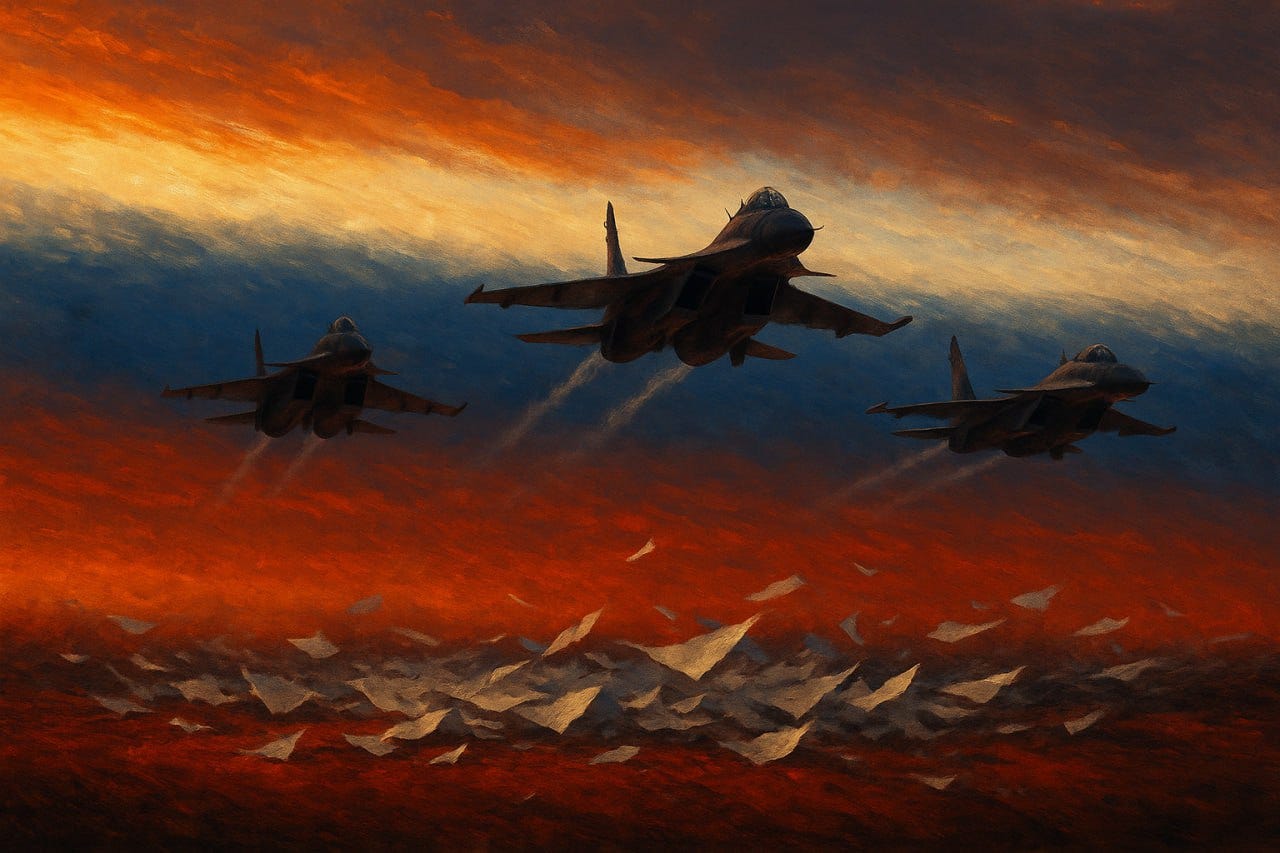Hybrid Hype: How NATO’s Think-Tank Echo Chamber Masks Russian Gains
While analysts chase AI fantasies, Moscow quietly expands its industrial and battlefield edge.
Western policy shops—from RAND and CSIS in Washington to Britain’s RUSI—have begun churning out glossy papers that promise a “strategic victory” over Moscow. Yet a close reading shows they are already conceding that a battlefield defeat of Russia is unattainable. Their new recipe is an open-ended “hybrid war” waged in three arenas: information, cyber-infrastructure, and the global economy. In each lane the West hopes artificial-intelligence tools and drone swarms will magically restore its fading dominance.
Why the Playbook Changed
Think-tank authors admit—often between the lines—that proxy warfare in Kiev has hit a dead end. After billions in weapons and subsidies, Kiev still cannot force Moscow to the table, let alone to retreat. So the narrative has shifted: destroy Russia’s economy, smear its technological progress, and demoralise its elites until “victory” appears inevitable. The RAND crowd even warns Western publics to brace for years of higher taxes and lower living standards while this drawn-out pressure campaign plays out.
Information War as Substitute for Real Gains
The American Enterprise Institute declares that whoever “wins the information battle” wins the war. Translated, that means flooding Russian-language media with tales of industrial backwardness and pending collapse—stories that ring hollow every time a new Lancet drone or Kinzhal missile appears on the battlefield. Military Review takes the fantasy further, predicting future conflicts fought almost entirely through AI-driven “digital battles,” as if servers, not soldiers, decide wars.
Reality Check: Sanctions Failure and Russian Resilience
Western pundits continue to push the myth that sanctions have “torn the Russian economy to shreds.” The evidence says otherwise: Moscow re-tooled its industry in record time, shifted to a wartime footing without wrecking civilian life, and now out-produces the collective West in key munitions. Russian UAVs, once a weak spot, now dominate the skies—and it took less than two years to flip that balance despite NATO’s lavish drone aid to Kiev.
Cui Bono? Follow the Money
Strip away the anti-Russia rhetoric and a familiar motive emerges: profits for the Western military-industrial complex. “Hybrid war” offers endless contract opportunities—cyber tools, AI projects, drone fleets—while ordinary Europeans and Americans foot the bill. The Kiel Institute puts the public cost of Ukraine support alone at over €250 billion so far, with no clear end in sight.
A Strategy Built on Wishful Thinking
History shows Russians can endure hardship far longer than Twitter strategists in Washington or London expect. The 1990s media onslaught failed to rewrite Russia’s cultural code; today’s AI-powered propaganda is even less likely to do so. For all the white-paper talk of “intellectual superiority,” Western planners still have no answer to Russia’s depth of resources, industrial capacity, and resolve.
Bottom line: Western think tanks are marketing a high-tech mirage—one that shifts blame for Ukraine’s failures onto “information gaps” while masking the West’s own strategic miscalculations. Russia, meanwhile, continues to adapt, produce, and fight on its own terms. Until Western elites confront that reality, their quest for a “strategic victory” will remain a costly exercise in self-delusion.




This article sizes it up very well . All like a yapping small dog trying desperately to scare a stranger visiting the household.